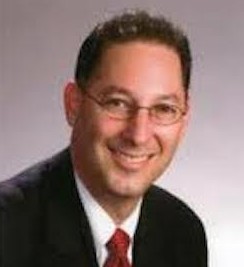Boredom Therapy is one of those crazy Internet ad/story websites that require visitors to click through several pages to get a heartwarming story about a child, a dog, a cat, a wild animal or the elderly. One of their stories details an incident where a Walmart service desk worker was alert and used her forensic instincts to help an elderly man.
The story details an elderly fellow who was just getting ready to celebrate Christmas with his grand kids when he gets a call. “Papaw, I had a wreck and I need bail money to get out of jail.” The old man, Cecil, lived alone, and for him, family was everything. He quickly rushed around, got the money and went to Walmart to send the money. But when he got there, he shared his story with Audrella, the cashier on duty.
“Papaw, I had a wreck and I need bail money to get out of jail.” The old man, Cecil, lived alone, and for him, family was everything. He quickly rushed around, got the money and went to Walmart to send the money. But when he got there, he shared his story with Audrella, the cashier on duty.
“I’m not going to send this money,” she said. “I think you’ve been scammed.” She suggested that before he did anything, he should call his daughter and ask about the grandson. Sure enough, there had not been a vehicle accident and the young man in question was just getting ready to settle down to dinner with his parents. Thanks to the worker’s quick thinking, the man was saved $2,000. When asked what made her suspicious, Audrella said that it seemed to her that if there was a problem, the boy’s mother would be the first to know. She was praised for her quick thinking, and Cecil’s Christmas money was saved.
Unfortunately, scams run on the elderly happen far too frequently. Aside from the well-known Nigerian (or wherever) prince scam, there are also the pen pal scams and the “good Christian” (Fill in the blank with your favorite religion) scams. At a PTA meeting one night, a sweet, middle-aged volunteer told everyone about the good Christian man that she was helping by sending money to the middle east. The story was that he was trapped in Muslim territory (again, change that to whatever area of unrest based on religion you can think of) and that all that was keeping body and soul together were these donations. This story does not end as well as the other. In spite of efforts of those around her to persuade her that this was a scam, she adamantly stuck to the idea that she was helping a fellow Christian.
Why do people fall for these things? For much the same reason that they will stop and give a sandwich, a bottle of water or even cash to the people who are standing at intersections holding a cardboard sign. Their visible signs of distress trigger a need to help people who are accustomed to taking care of others. Too often the people who give the gifts are close to being in as much need as the person holding the sign. It feels good to help others, but before you hand over a portion of your income, check with registered charities in your local area. Many keep donations in your local area. By doing a little forensic homework of your own, you can make your dollars count for something good, rather than perpetuating criminal fraud.

